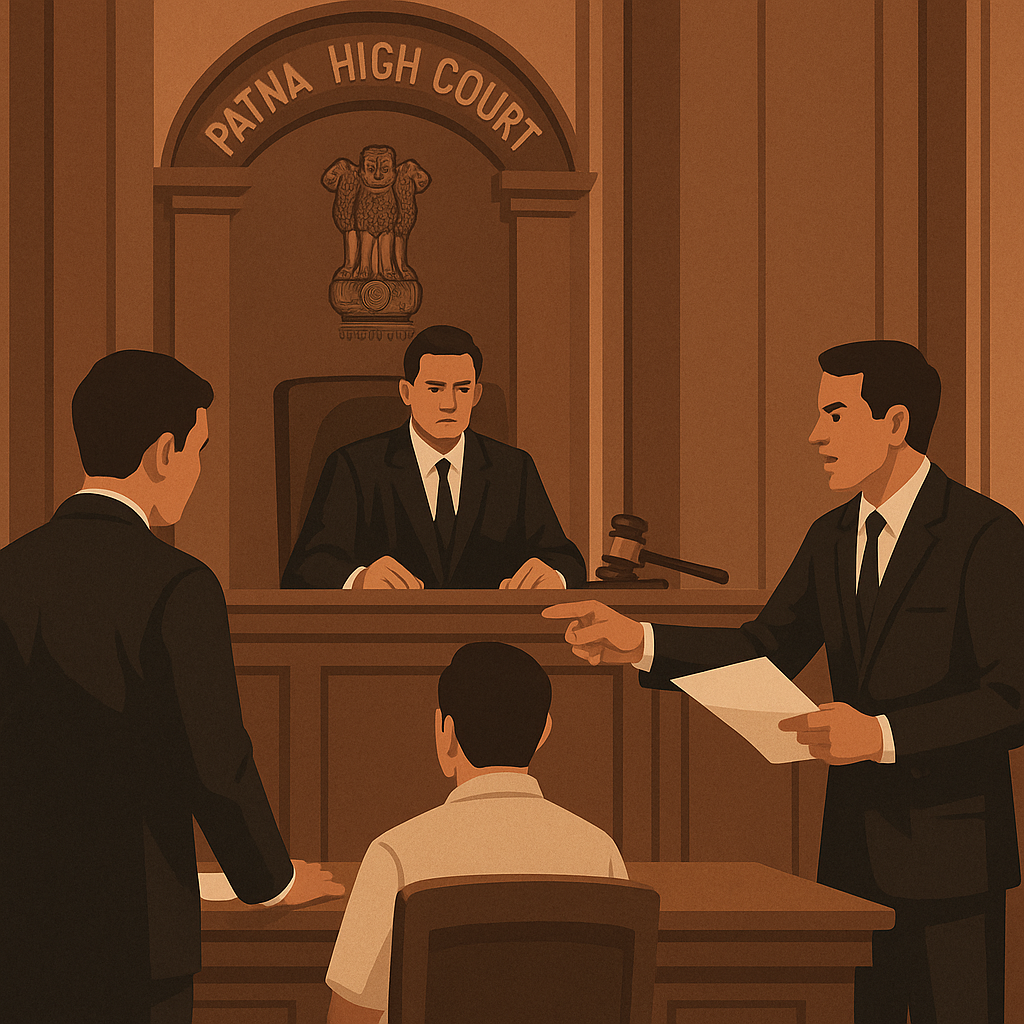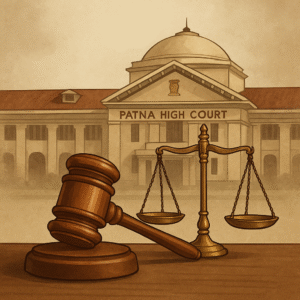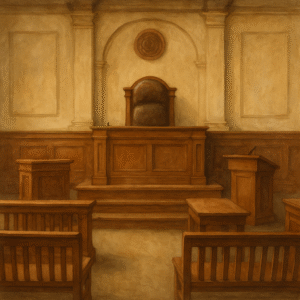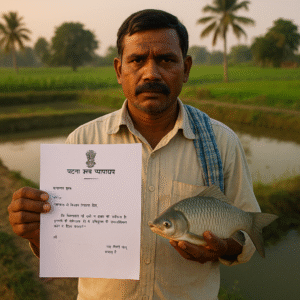Simplified Explanation of the Judgment
In a significant judgment dated November 16, 2021, the Patna High Court quashed the blacklisting of a company that had participated in a government tender related to voter list preparation. The Court held that since no contract was concluded between the parties and the petitioner was not given a chance to respond before being blacklisted, the action violated principles of natural justice and lacked legal authority.
The case concerned a proprietorship firm that participated in a tender floated by the District Election Office, Gopalganj, for preparing voters’ lists. The bidding process involved 26 items. The petitioner was declared the lowest bidder for 22 items (including 12 at zero rate). For the remaining 4 items, another firm had quoted the lowest rates. The petitioner was asked to match the lowest rate for these 4 items via an affidavit.
The petitioner, however, responded by offering to work at its originally quoted rates, arguing that quoting zero on some items was offset by competitive rates on others. The response was not accepted. Consequently, the authorities not only canceled the tender but also blacklisted the petitioner from future tenders in Gopalganj District.
The petitioner challenged the blacklisting on several grounds:
- There was no concluded contract as no formal agreement was signed.
- No show-cause notice was issued before blacklisting.
- The blacklisting was indefinite in duration.
- The action violated Article 14 and 19(1)(g) of the Constitution.
The High Court carefully analyzed the facts and relevant legal principles. It held that:
- A person cannot be blacklisted unless a contract has been concluded and subsequently breached.
- Blacklisting without notice and opportunity to respond violates natural justice.
- A permanent or indefinite blacklisting is not legally sustainable.
It noted that the petitioner had not signed any agreement with the respondents and was well within their rights to decline the revised offer terms during rate negotiations. The petitioner’s refusal could not be treated as breach of contract because no contract had been formed.
Additionally, the Court highlighted that the show-cause requirement is essential, especially when blacklisting imposes serious civil consequences. The failure to issue any prior notice made the blacklisting illegal.
Finally, the Court declared the indefinite blacklisting as excessive and disproportionate. Referring to Supreme Court precedents, the Court reiterated that even when blacklisting is justified, it should not exceed 3–5 years in most cases.
Accordingly, the High Court quashed the blacklisting order and allowed the writ petition.
Significance or Implication of the Judgment
This ruling reinforces important procedural safeguards in government procurement processes. It reaffirms that:
- No person can be penalized without being heard.
- Participation in a tender does not imply obligation unless a contract is executed.
- Penalties like blacklisting must be legally justified, proportionate, and based on a concluded agreement.
This decision protects business entities from arbitrary administrative actions and serves as a warning to public authorities to follow due process. It will be particularly relevant in cases where private bidders are subjected to punitive action despite no formal contract being signed.
Legal Issue(s) Decided and the Court’s Decision with Reasoning
- Can a bidder be blacklisted without a concluded contract?
❌ No. The Court held that in absence of an agreement, there was no concluded contract. Refusal to accept altered tender terms is not breach of contract. - Is show-cause notice necessary before blacklisting?
✔ Yes. The failure to issue notice violated natural justice. Penalty cannot be imposed without affording an opportunity to defend. - Is indefinite blacklisting permissible?
❌ No. Blacklisting for an unspecified or indefinite period is excessive and has been disallowed by the Supreme Court. - Was the blacklisting order arbitrary?
✔ Yes. Since the petitioner was penalized without breach and without notice, the action was found to be arbitrary and unsustainable.
Judgments Referred by Parties
- M/s Suraksha Diagnostic Pvt. Ltd v. State of Bihar & Ors, 2016 SCC OnLine Pat 7834
- Bhim Sain v. Union of India & Ors, AIR 1980 DEL 260
- South Eastern Coalfields Ltd v. S. Kumar’s Associates AKM (JV), 2021 SCC OnLine SC 487
- Daffodills Pharmaceuticals Ltd. v. State of UP, (2019) 17 SCALE 758
- Ventindia Pharmaceuticals Ltd. v. State of UP, (2020) 1 SCC 804
Judgments Relied Upon or Cited by Court
- UMC Technologies Pvt. Ltd v. Food Corporation of India & Anr, (2021) 2 SCC 551
- Kulja Industries Ltd. v. Chief General Manager, BSNL, (2014) 14 SCC 731
- Daffodills Pharmaceuticals Ltd. v. State of UP, (2019) 17 SCALE 758
Case Title
M/s The Art Gallery & Anr v. State of Bihar & Ors.
Case Number
CWJC No. 24956 of 2019
Coram and Names of Judges
Hon’ble Mr. Justice Anil Kumar Sinha
Names of Advocates and who they appeared for
- For the Petitioner:
Mr. Ashish Giri, Advocate
Mr. Gyanendra Kumar Shukla, Advocate - For the Respondents (State of Bihar):
Mr. Mithilesh Kumar Upadhya, AC to GP-3
Link to Judgment
If you found this explanation helpful and wish to stay informed about how legal developments may affect your rights in Bihar, you may consider following Samvida Law Associates for more updates.








